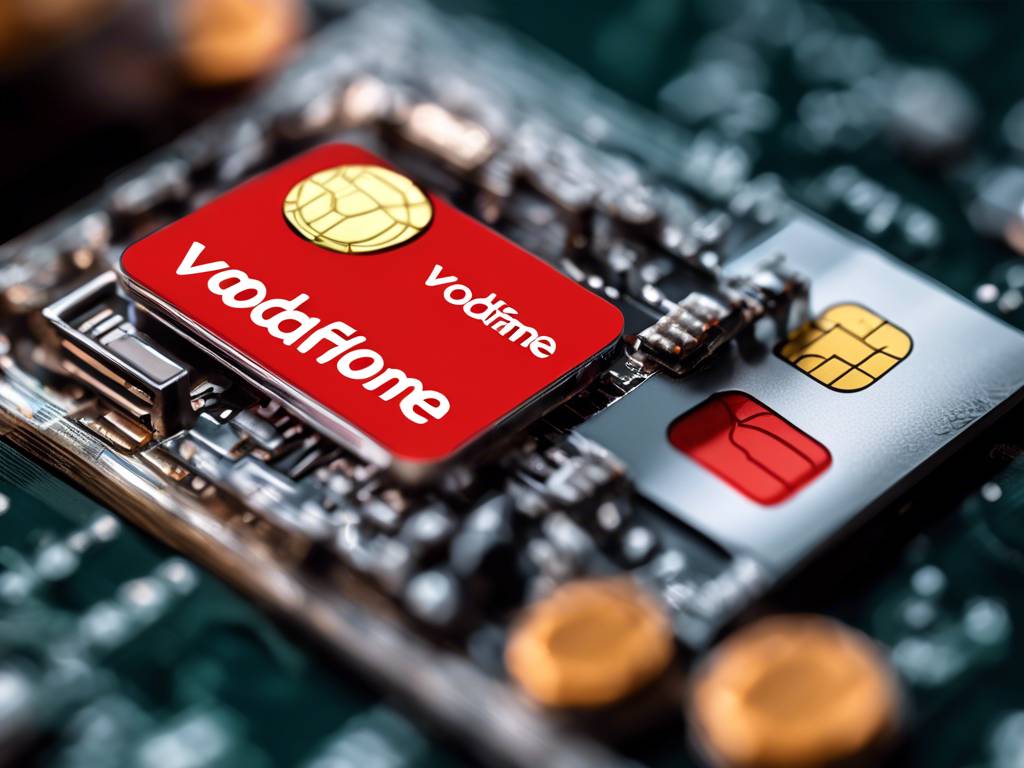Your Future Crypto Transactions Could Be on Your Mobile Phone 📱
If you’re a crypto enthusiast who loves convenience, then you’ll be excited to know that Vodafone is paving the way for seamless crypto transactions on mobile phones. By leveraging SIM card technology, the telecommunications giant is gearing up to meet the anticipated surge in demand for crypto transactions on mobile devices. Let’s explore how Vodafone is revolutionizing the digital wallet landscape with blockchain integration.
Vodafone’s Innovative Use of SIM Card Technology
Vodafone is taking a unique approach by tapping into the cryptographic capabilities embedded in SIM cards to enhance blockchain technology integration. This strategic move aims to streamline transactions and make digital wallets more efficient for users.
- By harnessing the cryptographic capabilities in SIM cards, Vodafone is facilitating the seamless integration of blockchain technology.
- The company envisions a future where there will be approximately 5.6 billion blockchain-based digital wallets by 2030, revolutionizing how individuals access financial services.
- Vodafone is advocating for the use of public blockchains due to their enhanced speed and security features.
Vodafone’s PairPoint Platform Driving Interoperability
Vodafone’s PairPoint Digital Asset Broker platform is a game-changer in the industry, enabling seamless transactions between public and private blockchains. This innovative platform serves as a bridge for enterprises seeking to leverage blockchain technology for secure and transparent transactions.
- PairPoint facilitates transactions between public blockchains like Ethereum and private blockchains such as Onyx by JPMorgan.
- The platform utilizes smart contracts to ensure seamless integration, making it easier for businesses to write to public blockchains securely.
- Smart contracts with features like account abstraction play a crucial role in ensuring cross-chain interoperability for enhanced functionality.
Vodafone’s Journey with P2P Micro-Payment Transactions
Vodafone’s exploration of peer-to-peer micro-payment transactions laid the foundation for integrating SIM card technology with blockchain applications. This evolution led to the introduction of digital identity passports, offering a secure way to manage private keys within SIM card hardware modules.
- The development of digital identity passports paved the way for decentralized digital identities for IoT devices, enabling seamless operations across different systems.
- Devices equipped with hardware wallets can now autonomously authenticate and execute transactions, showcasing the potential of secure digital identities.
- Vodafone’s emphasis on securing these wallets against cyber threats highlights the importance of proactive security measures in the digital age.
Vodafone’s Collaborative Innovations in Global Trade
In a bid to address challenges in the $32 trillion global trade ecosystem, Vodafone’s Digital Asset Broker (DAB) partnered with industry leaders like Chainlink Labs, Sumitomo Corporation, and InnoWave. These collaborative efforts focus on enhancing the exchange of trade documents across various platforms and blockchains, with a keen focus on security and interoperability.
Hot Take: Vodafone’s Cryptographic Revolution in Blockchain Integration 🚀
In a world where digital transactions reign supreme, Vodafone’s innovative use of SIM card technology to drive blockchain integration is reshaping the future of mobile payments. With a focus on security, interoperability, and user experience, Vodafone is paving the way for a seamless crypto experience on your mobile phone.





 By
By
 By
By

 By
By
